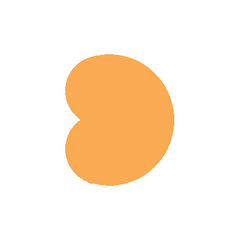Wanted: online identity thieves
It becomes increasingly important to protect your corporate brand online. McAfee (a security software company) calculated that there are 1,9 million registered variations on 2771 most popular domain names. These variations are based upon small typing errors (typo's). Google for example had a number of variations of its brand name online: googkle.com, ghoogle.com and gooigle.com This technique called typosquatting makes fraudulent use of the well known company and can create a false and wrong image of the company. Typosquatting sites piggyback on the popularity of the heavily trafficked website and refer to porn sites, include gambling links or worse infect computers with viruses. What can happen to your brand is illustrated when you type www.microsoft.cm You will enter an election site of Barack Obama! A questionable technique of a Presidents candidate. The Republic of Cameroon -with 10.000 people online- and with the suffix cm understands that it can earn money from people mistyping. It now sells it cm suffix to companies and organisations outside of Cameroon that want to benefit from typo's.
Protecting the online brand and controlling the content of the online brand continues to be a challenge to brand owners.


